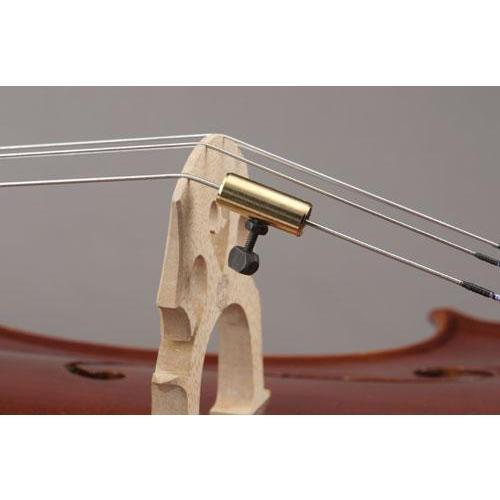Hey gang,
Usually a wolf note on an acoustic instrument is a note that doesn't speak well. It's an issue which they discovered can sometimes be fixed by adding small weights (mass) to the string beyond the bridge. Usually a brass piece with rubber inside. Like this:

All instruments, including ours, are susceptible to this kind of thing simply because any piece of material will have some resonance which will correspond to specific musical pitches.
I have a couple relatively dead notes on my basses (shorter sustain than neighboring notes) but they only appear in one spot. That same note in other positions is fine. I know this is a resonance issue because if I play that dead note while pressing the headstock against a wall, it sustains just fine...
Alembics are famously even and balanced when it comes to the note volume but I think all instruments share this weirdness and you simply need to learn any odd issues a specific instrument might have and then avoid them.
Having said all that ... Jazzyvee, if you are saying that all your Ds speak louder than others then I would venture to say it is more likely your listening environment, like a room resonance - standing wave kind of thing - or even a speaker cabinet resonance. You could try moving the amp away from the wall or even turning it at an angle. Does it happen in headphone?
Jimmy J